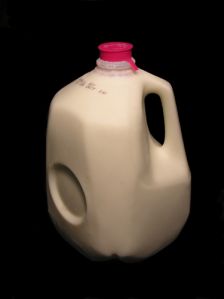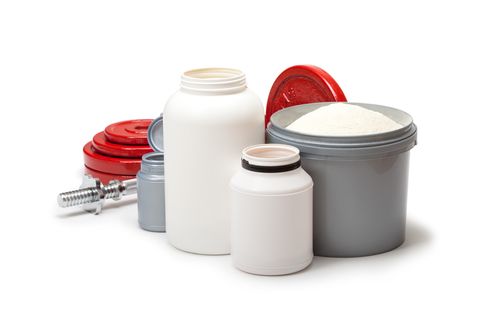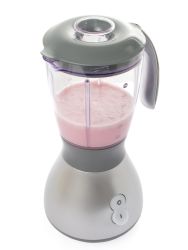Probiotics were first identified more than one hundred years ago. However, up until the last 20 years or so, they never really received much attention. As we learn more about them and the great things they can do to improve our health, knowledge about them is rapidly spreading. Let's take a look at what probiotics are and what they can do for us.
First, probiotics are live microorganisms that are believed to be beneficial to humans. "Pro" means "for" and "biotic" refers to life. Therefore, the word probiotics literally means "for life." According to the World Health Organization, probiotics are "Live microorganisms which when administered in adequate amounts confer a health benefit on the host." Lactic acid bacteria (LAB) and bifidobacteria are the most common microbes used as probiotics but there are others as well, including certain yeasts. They are usually consumed as part of fermented foods to which active live cultures have been added. Yogurt is the most common probiotic-containing food but you'll find them in dietary supplements too.
A Russian scientist named Elie Metchnikoff is credited with introducing the world to the potential health benefits of probiotics. He was among the first to theorize that probiotis have a positive impact on  human health by improving the microbial balance in the intestines. This, he believed, would inhibit the formation of pathogens and toxin-producing bacteria.
human health by improving the microbial balance in the intestines. This, he believed, would inhibit the formation of pathogens and toxin-producing bacteria.
The term 'probiotics' did not actually appear to be used until the 1950s and was first used by a man named Werner Kollath. Because there were defined as microbially-derived factors that stimulate the growth of other microorganisms, the word probiotics was apparently applied to the concept to contrast antibiotics.
Looking back to the early 1900s, it appears that Metchnikoff was on the right path because modern research seems to indicate that probiotics may be beneficial in alleviating chronic intestinal inflammatory illnesses, urogenital infections, pathogen-induced diarrhea and atopic diseases, which is a disease characterized by a tendency to be "hyperallergic".
Patients with atopy typically suffer from extreme cases of eczema, hay fever, allergic conjunctivitis or allergic asthma. Persons with atopy are also highly susceptible to food allergies. However, in a 2001 study conducted in Finland, researchers determined that the introduction of probiotics was effective in the prevention of early atopic disease among children deemed at high risk of atopy.
Metchnikoff's original thoughts about probiotics centered upon his belief that it would be possible to modify the gut flora—the microorganisms that live in our digestive systems—and to replace harmful microbes with ones that are beneficial. He theorized that the decomposition of proteins in the digestive tract produces toxins, which are responsible for what he referred to as 'auto-intoxication.'
Next, he came up with the idea that consuming fermented milk (the probiotics) would 'seed' the intestine with harmless lactic-acid bacteria. This would have the effect of decreasing pH levels in the intestinal tract, therefore inhibiting the growth of toxin-producing bacteria. To test his theory, introduced sour milk fermented with bacteria he called 'Bulgarian Bacillus' into his diet. Soon afterwards, he found that his health improved. Afterwards, his friends and associates began to do the same thing, with nearly everyone claiming that the practice was beneficial to their health.
However, it should be noted that evidence supporting the use of probiotics to alleviate health problems and issues is not concrete. More research is needed in order to establish a clear link. The U.S. Food and Drug Administration (FDA) has approved no specific health claims relating to the use of probiotics and neither has the European Food Safety Authority. This has nothing to do with whether or not they are beneficial though. It simply means that sufficient research has not been conducted to clearly establish a link. Despite this, Americans' spending on probiotic supplements nearly tripled from 1994 to 2003 and it continues to grow today. It is also important to note that probiotics are not the same as prebiotics. Probiotics are living organisms, whereas prebiotics are precursors to organic activity.
If you are interested in trying probiotics for yourself you have lots of options from which to choose. They are available in foods such as yogurt, some juices, soy beverages and more. They can also be consumed as dietary supplements available as capsules, tablets or powders. In some cases, users have reported gas, bloating, mild cramps, and occasionally, rashes. These symptoms are generally mild and disappear within a few days. However, before taking probiotics you should make sure that you don't have any conditions or allergies that would be exacerbated by their consumption.
More Information About Muscle Building Click Here
Source 4 Foods Never To Eat





No comments:
Post a Comment
What do you think about this quote? What's your favorite The Hangover. quote?